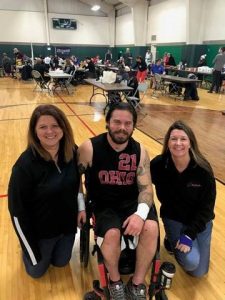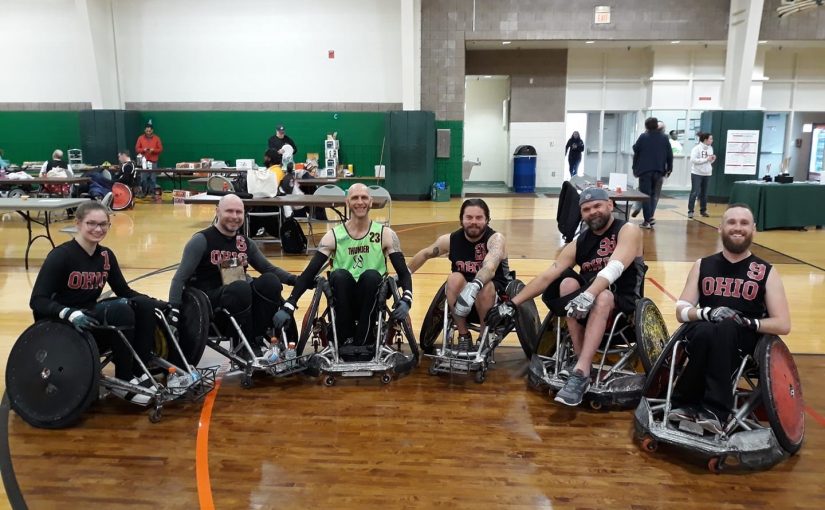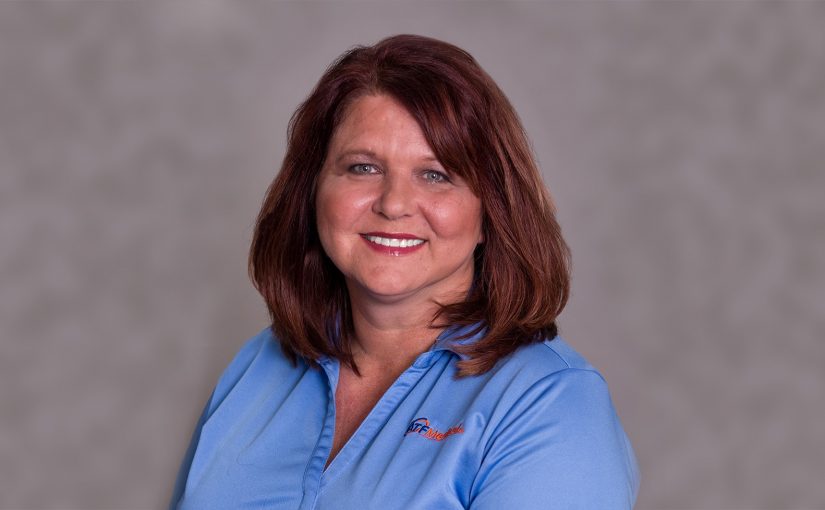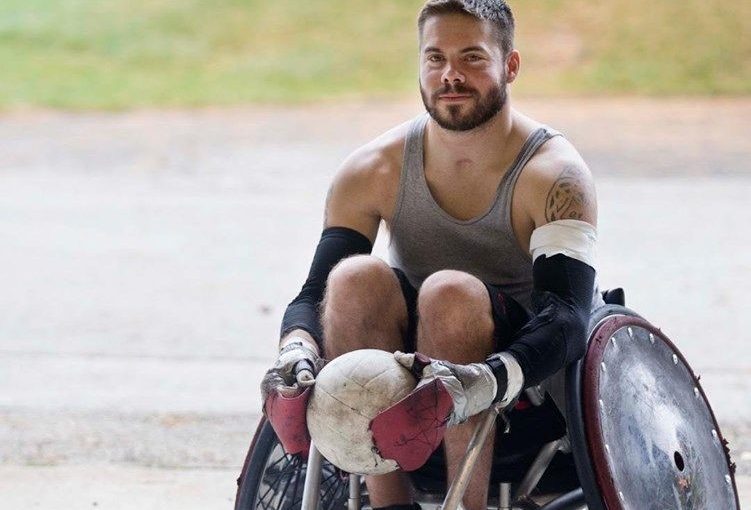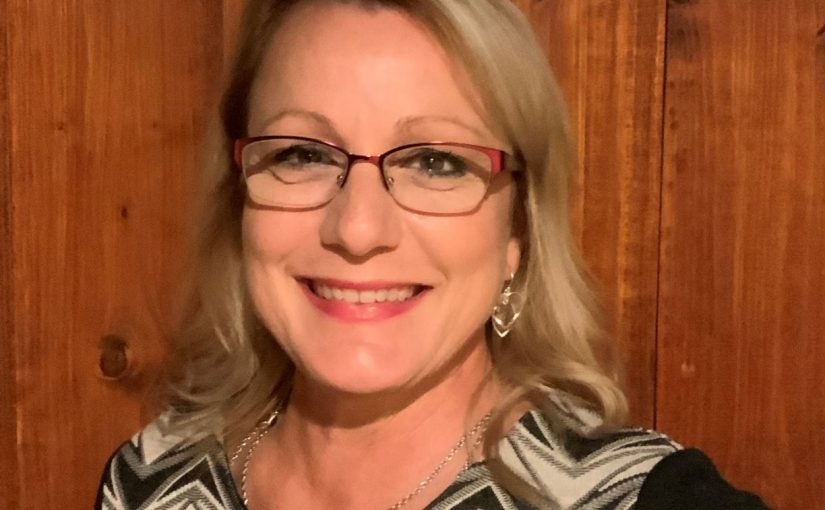How about sky diving or bungee jumping in a wheelchair?
Our new Rehab Support Coordinator Brad Burns has done all these and more.
At the age of 24, Brad suffered severe injuries – a broken neck and spinal cord injury among them – in a car accident. He went through two years of rehabilitation, and he knows the challenges of learning to use a power chair, migrating to a manual wheelchair and occasionally a walker.
During his recovery, he contemplated his future. Brad had worked construction before the accident and was studying to become a paramedic. He knew those jobs were out, but he was determined to return to work. So, he went to school and earned a degree in health information management and became a medical coder, and later became involved in case management.
While in rehab, Brad also thought about the things he hadn’t done yet. “My biggest regret was that I’d never traveled, never even been on an airplane,” he said. “So, three years after the accident, I started traveling by myself, first to a visit a friend in Portland, Oregon, and then on to Vancouver where you can bungee jump in a chair. They strap the chair to you and throw you off a bridge. It was exciting.” See his jump.
He later took a solo trip to Egypt where he saw the pyramids and ate dinner on the Nile. “A problem on this trip became my ‘moment,’” he said. The plane he was on was forced to turn around because of a sandstorm, and the delay caused him to miss the connecting flight. He was stranded in Egypt, unable to speak Arabic, and staying in a hotel that wasn’t wheelchair accessible.
“I had to pop three wheelies just to get into the hotel and the elevator was barely big enough to fit the wheelchair,” he said.
Navigating those obstacles on his first international trip and getting home safely made him realize he could live a full life, and he continues to travel overseas. He also volunteers as a peer mentor at OhioHealth, a non-profit hospital system with a peer support and spinal cord program, and frequently speaks to different groups.
Brad had played football and ice hockey in high school and his love of sports led him to Wheelchair Rugby, which he calls “controlled chaos” with bumper carts and wheelchairs on a basketball court. His team has five tournaments a year, and he’s also participated in four half marathons.
“The great thing about sports is meeting new people. Even if you don’t want to play rugby, it’s important to hang out with people who are similar,” he said. “It’s good to see people in chairs who have jobs and play sports. The mental aspect of recovery, the sense of losing your identity, takes longer than physical recovery, and it helps to surround yourself with people who have similar experiences and who have the right attitude.”
Brad’s journey hasn’t been easy. He was in a Cleveland, Ohio hospital for five months and spent another two years in an outpatient program. Before his injury, Brad was an athlete, a construction worker, a big guy who helped people move. He wasn’t used to having other people help him. There were days he indulged in a 10-minute pity party, but he kept going with the support of a great family and skilled physicians and rehab specialists, including a locomotor training program sponsored by the Christopher and Dana Reeve foundation.
“If you don’t do anything, nothing is going to happen,” he says.
Although he can use a walker for short periods, Brad stays in his wheelchair most of the time and totally understands the necessity of a good fit. “If the chair doesn’t fit you right, it can cause back pain, wounds, all kinds of problems,” he says. “You want to be as independent as you can and need to be able to get the right tools.”
That’s why ATF Medical professionals work so hard to equip injured workers with the tools they need, including selecting the size and type of chair that fits the best and working with injured workers to ensure a good fit. We also check back a little later to make sure the equipment is still appropriate, and we service and maintain it so we can keep an eye on things and recommend modifications or different equipment if conditions change.
At ATF Medical, Brad helps injured workers receive the right wheelchairs and other medical equipment in a timely manner by coordinating among patients, providers and insurance adjusters. We are delighted to have Brad on board and appreciate his skills and the knowledge and compassion he’s gained from personal experience.
Say hello to Brad by emailing Bburns@atfmedical.com.
